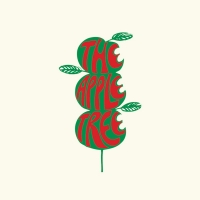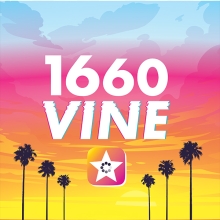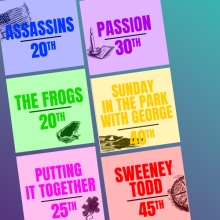
Full Synopsis
Act One
The Diary Of Adam And Eve
Adam is asleep in a garden — if you can call it that — a small patch of flowers and an apple tree over the hill in the distance. A voice awakens him and instructs him to start assigning names to the creatures of Eden but warns him to steer clear of that apple tree. Reluctantly, he begins the task. Suddenly, he feels a pain in his rib. Ouch! He looks down curiously at Eve but decides to "name it later" and leaves.
Eve looks around and likes what she sees, taking delight in being here but admitting that she has "one tiny reservation / There's nothing handy for making conversation" ("Here in Eden").
Adam reappears with a fish that he just caught. She threatens him with a rock if he doesn't release the poor little thing. She wins that round.
Second day. Referring to Eve as "that new long-haired creature," Adam is bewildered by her and tries to keep his distance, but she's quite remarkable. She's able to name the species of things ("parrot" or "pickerel"), whereas Adam can only identify them as "flyer" or "swimmer." They argue a bit and he excuses himself, explaining that he has "to go empty the four-pronged white-squirter." She responds, "You mean the cow?" Left alone, Eve ponders her reaction to Adam ("Feelings").
Adam announces the sixth day and complains that Eve seems to name everything and that he never gets a chance. It looks like rain. He starts to build a shelter. Eve comes along with an apple in her hand. Adam is shocked and warns her about the apple tree over the hill, where the fruit is forbidden. She's curious and wants to try it, but he warns her to stay away from it.
He's completed the shelter just as it begins to rain. She wants to enter the hut, but he claims there's no room. She begins to cry, so he allows her to come into the shelter if she will stop "raining."
Sunday. Adam vents his frustration with Eve but admits that she's certainly interesting ("Eve"). On the other hand, she can pester him, too — to do this and do that — but now he's relieved, since she's spending more time down at the pond with the Snake, giving Adam time to rest quietly.
Looking into the pond, Eve attempts to communicate with her reflection, thinking that the girl she's addressing is really another person ("Friends").
The Snake, dressed in a tuxedo, enters and, in highly scientific terms, explains her reflection in the pond. She's disillusioned, for she thought that she had a friend in the reflection but, on the other hand, she's very impressed with the Snake's intelligence and wishes that she could be educated, like him. The Snake tempts Eve to savor the irresistible "forbidden fruit," promising information that she'll need for her education and that she'll be an inspiration to Adam ("The Apple Tree").
In the garden, Adam is horrified to see a lion suddenly attack a lamb. This had never happened before. Something's up. Thunder roars. He realizes that it's Eve's fault. He confronts her. "I warned you. You ate the apples, didn't you?" But she tries to shift the blame to him. They both admit a sense of guilt and she assures him that, since he's hungry, there's no harm in taking a bite of her apple. He does. They feel shame and cover themselves. They realize that they better leave and build a new shelter elsewhere.
Time has passed. Adam is seated on a porch with a corncob pipe in his hand. He admits that he needs Eve as his companion. He's been working on the multiplication table, and she asks how it's coming along. He puts his arms around her and asks if she's putting on a little weight.
The new father, not recognizing what the peculiar and new member of the household is, decides that Eve has birthed a fish ("It's a Fish"). Eve, carrying the "fish" wrapped in a blanket, sings it a lullaby, "Go to Sleep Whatever You Are." Adam, still puzzled about what "it" is, announces, "I'll be damned if she didn't catch another." Eve recognizes that they're boys and that it was their "immature shape that puzzled us." She calls to the boys, Cain and Abel.
Years pass. Eve reflects that, "Cain struck Abel and ran away," and realizes how much she depends on Adam ("What Makes Me Need Him?").
Adam is alone. "Eve died today." It didn't matter that they had to leave the Garden "because, wheresoever she was, there was Eden." He tends to her flowerbed.
Act Two
The Lady Or The Tiger
The Balladeer enters with a guitar, singing "I'll Tell You a Truth" to introduce a tale of star-crossed lovers.
King Arik and his daughter, the Princess Barbara (pronounced "bar-BEAR-a") make a royal entrance, cheered on by their subjects ("Make Way"). The Balladeer supplies some background on the King, who invented a curious game in which a prisoner in the arena has to choose between two doors; behind one is a ferocious tiger. It can be a bloody game of chance. A demonstration is in progress. The crowd reacts as the prisoner hesitantly approaches one door and then the other. Finally, he chooses the wrong one (needless to say), and a tiger leaps out to devour him.
The Balladeer comments, "However, suppose that he had chosen the other door," and we get a replay of the scene as a beautiful lady steps through the door.
Meanwhile, back at the palace, we are introduced to the brave Captain Sanjar. The exhausted warrior enters, announces a victory and collapses on the spot.
Left alone, Barbara kisses Sanjar awake and embraces him ("Forbidden Love"). Occasionally, they are interrupted by Guards and/or Handmaidens but, when left alone, resume their declarations of love for each other. They plan to run away together but they know it will never work ("Gaul").
King Arik confronts them. Princess Barbara can never love a common man according to the sacred commandment. Sanjar is taken prisoner. The Princess must find a way to save her lover, but how? Ah, ha, of course, she'll go to the Royal Tiger Keeper, who bears a remarkable resemblance to the Balladeer we met earlier (who bears a remarkable resemblance to the Snake we met even earlier). Barbara offers him her jewels in exchange for a tiny bit of information... behind which door is the tiger kept? ("I've Got What You Want"). He advises her that it would be better for her not to know which door Sanjar should choose, but she insists, so he whispers the secret in her royal ear.
Nadjira, Barbara's servant girl, who also has her cap set on Sanjar, is brought in. Lo and behold, she's to be the prize behind the second door. Barbara protests, but to no avail.
The Balladeer comes in, pushing the tiger cage into place. Barbara is determined that, if she can't have Sanjar, Nadjira never will. You mean the tiger gets him? But either way, Barbara is going to lose her man ("Tiger, Tiger").
Again, the arena. Facing the two doors, a terrified Sanjar looks to Barbara for a signal as to which to choose ("Which Door?"). The spotlight shifts to Barbara in her hopeless distress: send him to the tiger or into the arms of Nadjira? "This choice is tearing me apart." Finally, she points her royal finger at one door. Sanjar approaches the door hesitantly. The decisive moment!
The action freezes and the devilish Balladeer has the last lyric. Curtain.
Act Three
Passionella
Ella is sweeping the chimney on a rooftop overlooking Manhattan. The Narrator explains that this is not her chosen career. "Oh, no," chimes in the chimney sweep and tells us what she really wants: to become a movie star; she'd even "sweep out the theatre / And fold up the chairs" ("Oh, to Be a Movie Star").
Despite her devotion to her job, automation is taking over the chimney sweep's craft. She's fired. Her piggy bank is empty. She's desperate. Even her television set (where, at least, she could watch movie stars on the Late-Late Show) has gone dark. Then a spark. A glow. A flash! Suddenly a blackout. The voice of the Narrator announces an answer to her most cherished dream. More flashes.
She appears, transformed into the blond and beautiful Passionella ("Gorgeous"). The Narrator warns her that she can be the glamorous superstar only from the time of the nightly news to the end of the Late-Late Show. Passionella asks, "And the rest of the time?" To which, the Narrator replies that she'll be her "usual sooty self." She realizes that she must make the best of every moment, so she rushes off to a posh night spot, where the guests are enthralled with her mysterious beauty ("Who Is She?").
The Narrator explains how this ravishing beauty keeps mysterious hours, working only between the evening news and the end of the Late-Late Show. She is more and more in demand, more pictures, more parties, more premieres. Men beg for her. Women envy and emulate her ("I Know").
The Narrator asks, "But — was Passionella happy?" Ay, there's the rub. Passionella itemizes all of the benefits of being famous, glamorous and successful but concludes that she is not truly content since she has no one with whom to share her attributes ("Wealth").
Then, the Narrator describes how she met the right man in a Hollywood drug store. He's a combination of Bogart, Brando, Presley... with "the hair style of Eleanor Roosevelt." His name: Flip (aka Prince Charming).
Flip is very cool. Very hip. With it. He confronts Passionella, claiming that all that she's got is "a Cinerama body / And a celluloid heart" ("You Are Not Real"). With microphone in hand, twirling the cables, he declares that what he's looking for, what will get his "heart to throb," is a girl who's "a slob."
Passionella goes to her producer to complain about playing paper-thin glamorous roles. She wants to play something real... like a chimney sweep! The studio agrees. She's a sensation. It's great art! It's real! A huge Oscar rolls on. She wins for "The Chimney Sweep." Cheers! A glamorous Passionella sweeps down the theatre aisle. Flip greets her, presents the statuette and asks her to marry him.
The Narrator describes how the two lovers went home and made "love in front of the television set."
A film on a huge screen is showing the ending of "Camille." The Late-Late Show ends, and the network is signing off. She's forgotten about the "network sign-off" deadline. The lights go out and then come up on Ella as we first saw her... as the chimney sweep. Apparently, Flip is under the same spell as Ella. We see him as a mousy, shy fellow plopped in front of a TV set. They spot each other and giggle and embrace. And the Narrator assures us that "they lived happily ever after."
Show History
Inspiration
The Apple Tree is a compilation of three musical playlets, with music by Jerry Bock, lyrics by Sheldon Harnick and a book by both, with contributions from Jerome Coopersmith. It consists of three separate acts and stories, tied together with the common theme of someone getting what they wished, only to realize that it did not solve all of their problems. The first act is based on Mark Twain's The Diary of Adam and Eve, which views the story of Adam and Eve and Cain and Abel in a more contemporary light. The second act is based on Frank R. Stockton's short story, The Lady, or the Tiger?, which depicts a princess facing a forbidden love with a peasant, and the consequences that follow. The final act is a version of the comic, Pasionella, a take on the classic tale of Cinderella, this time, telling the tale of a chimney sweep who dreams of stardom.
Productions
The Apple Tree opened on Broadway on October 18, 1966, at the Shubert Theatre. It was directed by the legendary Mike Nichols and closed on November 25, 1967, after 463 performances. The next New York production of the musical came almost 40 years later, when the Encores! company staged a concert production from May 12, to 16, 2005. The next year, the Roundabout Theatre Company mounted a full revival that ran from December 14, 2006, to March 11, 2007, for a total of 117 performances.
Trivia
- The original Broadway production of The Apple Tree was nominated for seven Tony Awards in 1967, including Best Musical, Best Composer and Lyricist, Best Direction of a Musical and Best Choreogrpahy. The Broadway revival was nominated for a Tony Award for Best Revival of a Musical, three Drama Desk Awards (including Outstanding Orchestrations and Outstanding Revival of a Musical) and two Outer Critics Circle Awards (including Outstanding Revival of a Musical).
- Celebrities that have starred in The Apple Tree include: Alan Alda, Barbara Harris, Larry Blyden, Kristin Chenoweth, Michael Cerveris, Brian D'Arcy James, Marc Kudisch and Malcolm Gets.
Critical Reaction
"Tuneful and sweet-tempered."
– The New York Times
"This collection of three mini-musicals is more than just a solid triple-play: It's a grand-slam success... [that] triumphs by being itself and by allowing its stars to do what they made their names on. What a concept. And what a wonderful show."
– Talkin' Broadway
"There's a versatility and command of tone and theme on display that identify the composer-lyricist team as master craftsmen."
– Variety
"A cute, quirky spoof about male-female relations, jealousy and power, and the celebrity culture of Hollywood. [Contains...] a light comic touch that lets us laugh and take the show seriously at the same time."
– The Komisar Scoop
"[Bock and Harnick] have connected the stories with their enchanting songs."
– New York Theatre Guide
"Has ample charm to sustain it for two hours."
– USA Today
"Generates more than its share of smiles. ...The wide variety of material affords a chance to add some adventurous new angles."
– The New York Sun
"To give you your steep money's worth, a triple bill is needed, and it is hard to make three separate entities cohere in an emotionally satisfying way. That is why The Apple Tree, with book, lyrics and music by Jerry Bock and Sheldon Harnick, is such a felicitous exception. ...The fine songs, undeservedly little-known, are made even more appealing by coming to us not as shopworn oldies but as stunning surprises. ...If you haven't yet added the team of Bock and Harnick to the partnership pantheon of Lerner & Loewe, Rodgers & either Hart or Hammerstein, and George & Ira Gershwin, now is the time to do so."
– Bloomberg
Tony® Award
Connect
Playbill Vault (Original)
Playbill Vault (2006 Revival)
Billing
- Book by
- Additional Book Material by
- Music and Lyrics by
Based on stories by Mark Twain, Frank R. Stockton and Jules Feiffer
Requirements
Originally Produced on the Broadway Stage by Stuart OstrowOriginal Production Directed by Mike Nicholas
Video Warning
In accordance with the Performance License, you MUST include the following warning in all programs and in a pre-show announcement:ANY VIDEO AND/OR AUDIO RECORDING OF THIS PRODUCTION IS STRICTLY PROHIBITED.
Included Materials
| Item | Quantity Included |
|---|---|
| LIBRETTO/VOCAL BOOK | 20 |
| PIANO CONDUCTOR'S SCORE | 2 |
Production Resources
| Resource |
|---|
| HOW DOES THE SHOW GO ON-10/CS |
| HOW DOES THE SHOW GO ON? |
| PRODUCTIONPRO-DIGITAL SCRIPT/SCORE |
| REFERENCE RECORDING |
| STAGE MANAGER SCRIPT |
| STAGE WRITE APPLICATION |
| TRANSPOSITIONS-ON-DEMAND |
STANDARD ORCHESTRATION
| Instrumentation | Doubling |
|---|---|
| BASS | |
| CELLO | |
| HARP | |
| HORN | |
| KEYBOARD 1 | |
| PERCUSSION | AFRICAN DRUM , BELLS , BONGO , CHIMES , COWBELL , FINGER CYMBAL , GONG , MARACAS , TAMBOURINE , TOM TOM , TRIANGLE , TYMPANI , XYLOPHONE |
| REED 1 | ALTO SAXOPHONE , CLARINET , Eb CLARINET , FLUTE , HARMONICA , PICCOLO |
| REED 2 | ALTO FLUTE , ALTO SAXOPHONE , C FLUTE , CLARINET , G FLUTE , PICCOLO |
| REED 3 | BARITONE SAXOPHONE , BASS CLARINET , ENGLISH HORN , OBOE , TENOR SAXOPHONE |
| TROMBONE | |
| TRUMPET | |
| TRUMPET 2 | |
| VIOLA | |
| VIOLIN | |
| VIOLIN 2 |




